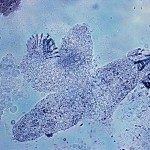Présentation
More sensitive and specific malaria RDTs based on the detection of new biomarkers of Plasmodium infections, implementable in the field (as point-of-care), have to be developed. The objective of these new tools would allow testing populations living in malaria endemic areas, to effectively detect all parasite carriers and sterilize the hidden parasite reservoir involved in the persistence of the malaria transmission. In this regard, this issue has been debated at the Malaria Policy Advisory Committee meeting (MPAC-WHO) hold in October 2018. One of the conclusion of this meeting, in phase with the objectives of the WHO assembly expected beyond 2030 and of the Global Fund to fight AIDS, TB and malaria, was to encourage the development of more sensitive and specific malaria RDTs, capable to detect very low parasitaemia in asymptomatic.
In this context, our proposal aims to develop a robust methodology for identifying novel and specific parasite biomarkers associated to very low parasite density (~1 parasite /5 µL whole blood) in falciparum and vivax asymptomatic malaria infection. This project will associate complementary skills of FIND and Institut Pasteur Paris. Both are recognized as a research leader on malaria in malaria endemic areas in many parts of the world (FIND), and in fundamental and basic researches thanks to the support of various high-technological platforms (genomic and proteomic) (Institut Pasteur Paris).

